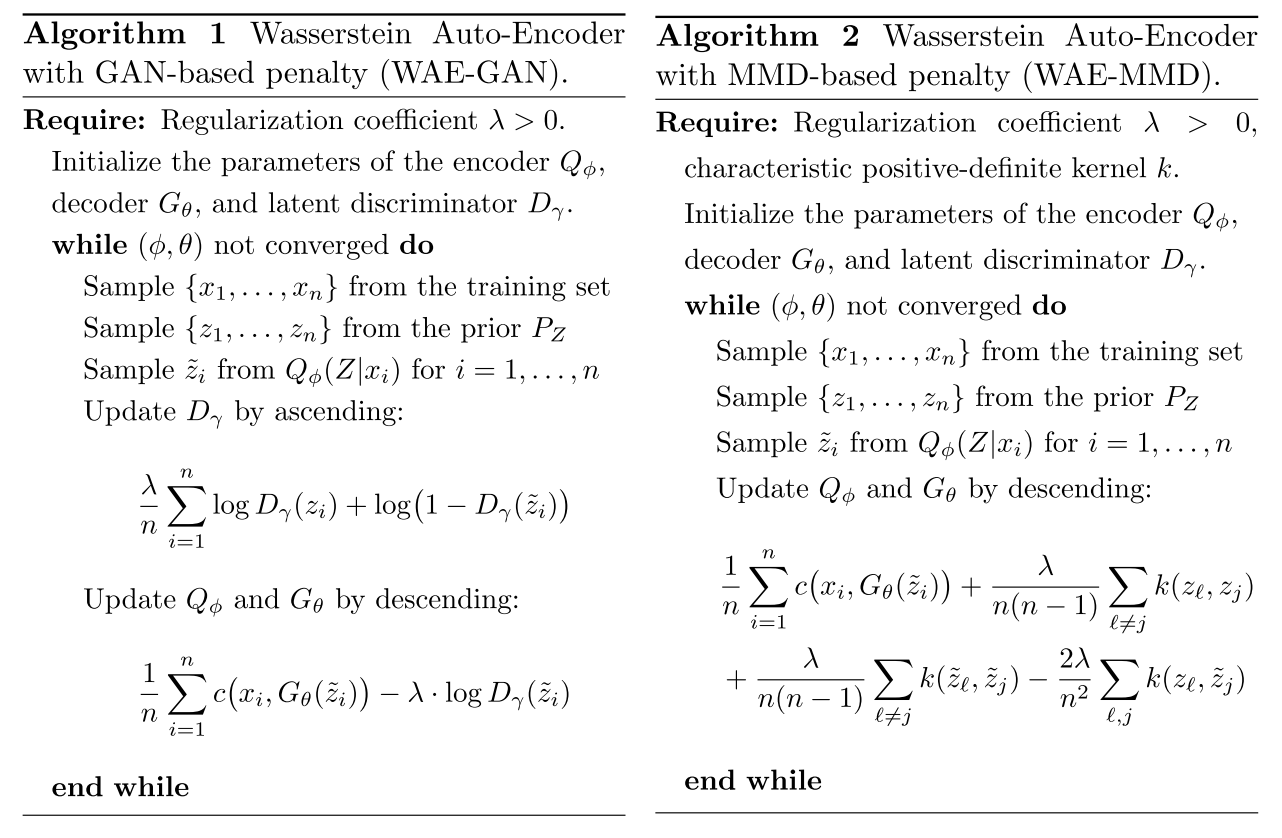Wasserstein Auto-Encoders
WHY?
기존의 VAE에서는 variational lower bound를 통하여 marginal log-likelihood E_{P_{X}}[log_{P_{G}}(X)를 최대화 하고 Q(z)와 P(z|x)간의 KL Divergence를 최소화하도록 하는 regularization term을 통하여 encoder와 decoder를 학습시켰다.
WHAT?
Generator를 학습할 때 variational lower bound가 아닌 실제 분포와의 Wasserstein distance를 사용하여 학습하였다. Wasserstein distance란 다음과 같이 정의될 수 있다.
W(\mathbb{P}_{X}, \mathbb{P}_{G}) = inf_{\Gamma \in P(\mathbb{P}_{X}, \mathbb{P}_{G})} \mathbb{E}_{(X,Y)~\gamma} [c(X - Y)] = inf_{Q: Q_{Z} = P_{Z}}\mathbb{E}_{P_{X}}\mathbb{E}_{Q_{Z|X}}[c(X,G(Z))] where Q_{Z} is the marginal distribution of Z when X ~ P_X and Z ~ Q(Z|X)
여기에 Q(Z)에 대한 regularization term을 추가하여
D_{WAE}(P_X, P_G) := inf_{Q_{Z|X} \in K}\mathbb{E}_{P_{X}}\mathbb{E}_{Q_{Z|X}}[c(X,G(Z))] + \lambda \cdot D_Z(Q_Z, P_Z)
라는 목적식이 만들어지게 된다. 여기에서 D_Z(Q_Z, P_Z)는 GAN base와 MMD base 두가지를 제시한다. 학습하는 알고리즘은 다음과 같다. 
So?
이를 통하여 종종 blurry한 결과를 가져오는 VAE보다 좋은 결과를 생성해 낼 수 있게 되었다.
